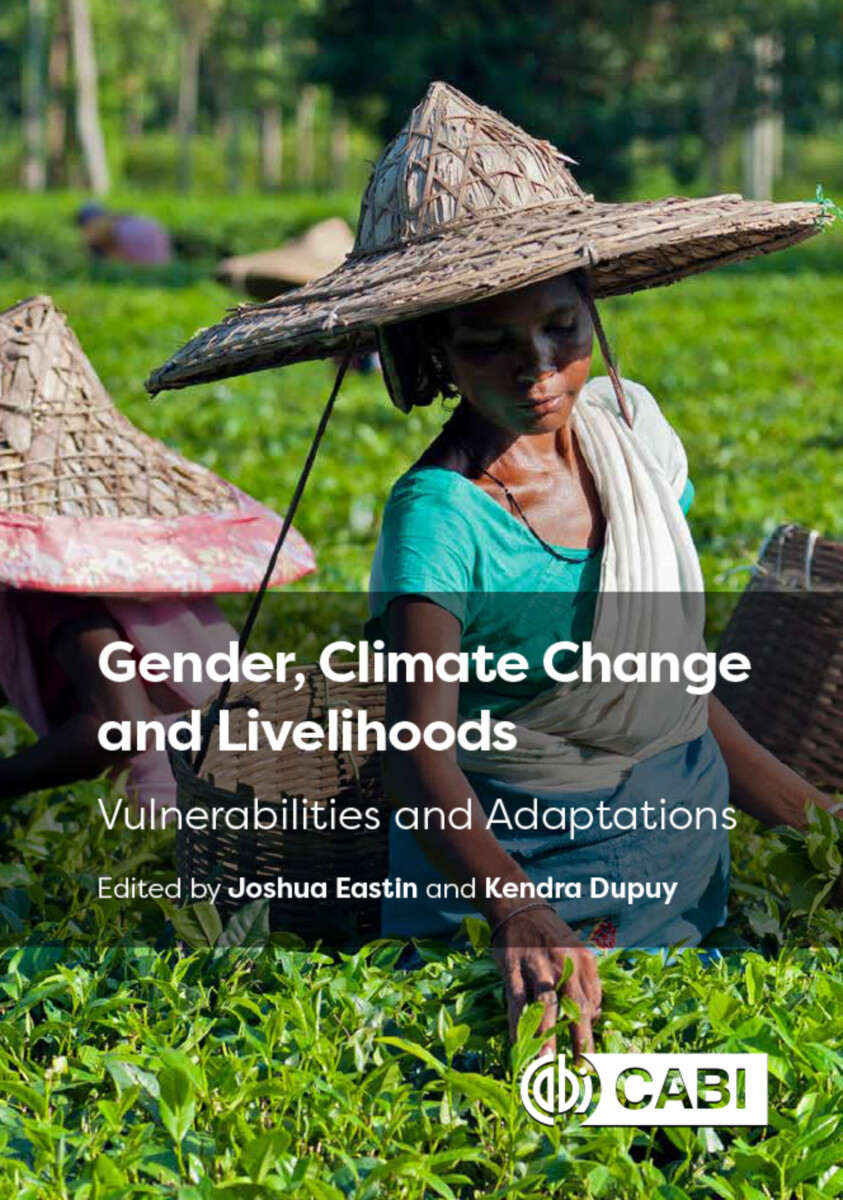Gender, Climate Change and Livelihoods
Vulnerabilities and Adaptations
- Publisher
CABI - Published
23rd August 2021 - ISBN 9781789247053
- Language English
- Pages 264 pp.
- Size 6" x 9"
This book applies a gendered lens to evaluate the dynamic linkages between climate change and livelihoods in developing countries. It examines how climate change affects women and men in distinct ways, and what the implications are for earning income and accessing the natural, social, economic, and political resources required to survive and thrive. The book's contributing authors analyze the gendered impact of climate change on different types of livelihoods, in distinct contexts, including urban and rural, and in diverse geographic locations, including Asia, Africa and the Caribbean. It focuses on understanding how public policies and power dynamics shape gendered vulnerabilities and impacts, how gender influences coping and adaptation mechanisms, and how civil society organizations incorporate gender into their climate advocacy strategies.
This book:
- Provides cutting-edge scholarship on an underrepresented area of climate change: the gendered impacts of climate change on livelihoods.
- Covers a range of different types of livelihoods and geographic locations.
- Involves contributors from a diverse array of cultural and scholarly backgrounds, bringing contrasting perspectives to the topic.
I: Introduction
1: An introduction to Gender, Climate Change, and Livelihoods
II: Gendered livelihood vulnerabilities to climate change
2: A gendered approach to understanding climate change impacts: Lessons from a coastal region of Bangladesh
3: Understanding gendered impact of disasters on women, household dynamics and coping strategies: A case study of Bangladesh
4: Gender, weather shocks and food security: Empirical evidence from Uganda
5: Managing livelihood in displacement: The politics of landownership and embodied health and wellbeing by senior women in Kenya.
6: Seeing Through Water: Gender, Anxiety, and Livelihoods in Large-Scale Infrastructural Development in the Era of Climate Change
7: Caring for corn and beans: Re-assessing subsistence agriculture and climate change
8: Climate change, livelihoods, and domestic violence in Indonesia
III: Addressing the gendered impacts of climate change on livelihoods
9: Gender and Climate-Smart Agriculture in Africa
10: Gender differences in awareness and adoption of climate-smart agriculture practices in Bangladesh
11: Gender and Climate Change Adaptation in Livestock Production in Tunisia
12: The Nexus Between Climate Change, Migration, and Gender
13: Gendered Livelihood Adjustments in the Context of Climate-induced Disasters
14: Climate-induced migration, Women and Decision-making Power in the Agricultural Wage Sector in Saiss Morocco
15: Bringing women’s livelihood and care perspectives into climate decision-making
16: Gender Mainstreaming in Climate Change Adaptation Strategies in Bangladesh and Nepal
IV: Conclusion
17: Conclusion: Final Thoughts and Future Directions
Joshua Eastin
Joshua Eastin is Associate Professor of Political Science at Portland State University. His research addresses the causes and consequences of economic underdevelopment, with particular focus on issues related to the environment, gender, armed conflict, and economic globalization. He has conducted extensive fieldwork and surveys in the Philippines, where he also served as a visiting research fellow at the University of the Philippines-Diliman. His work has appeared in a wide range of academic journals, and he is co-author of Greening China: The Benefits of Trade and Foreign Direct Investment (University of Michigan Press, 2011).
Kendra Dupuy
Kendra Dupuy is a political scientist researching natural resource and environmental management, climate finance, armed conflict, and development. She holds a PhD in political science from the University of Washington, where she wrote her PhD on new regulatory frameworks to compensate local communities in the extractive industries. She has provided evidence-based policy advice to bilateral and multilateral aid agencies, international organizations, and non-governmental organizations.


